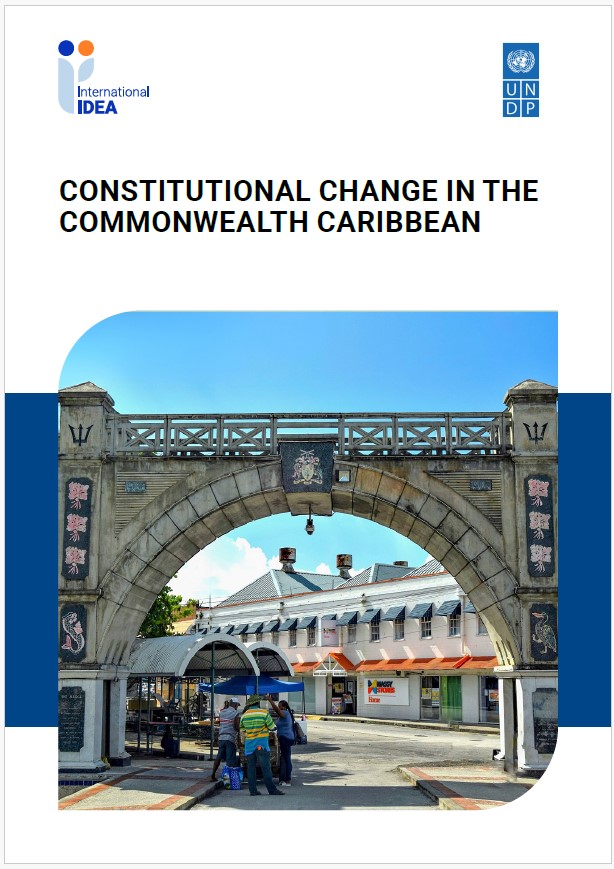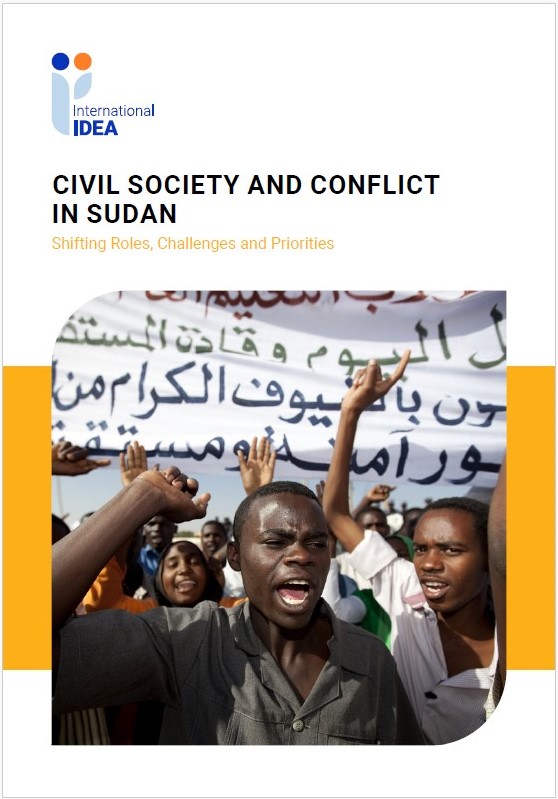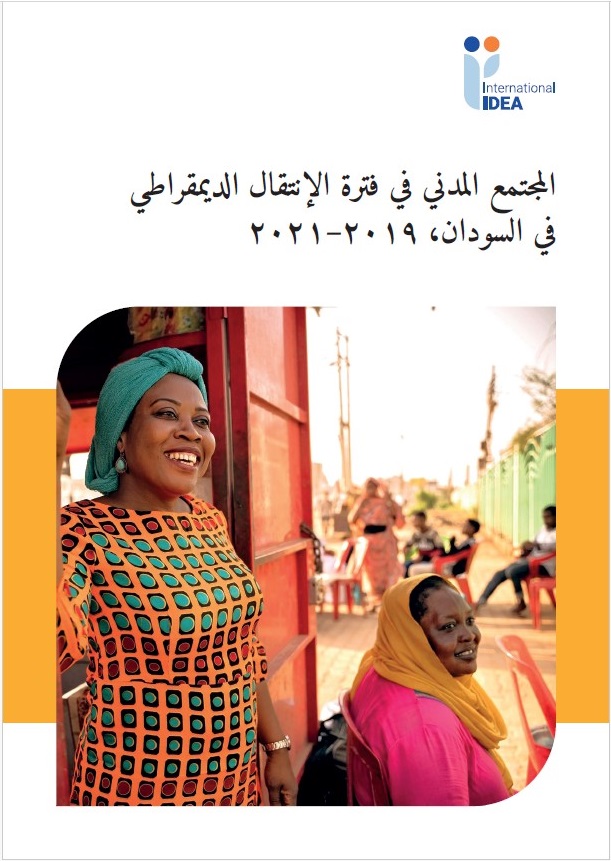A total of 67 candidates, including four women, as well as incumbent Member of Parliament (MP) Charmaine Scotty, who is also a government Minister, stood for the 19-seat Parliament in the elections in Nauru on 9 July 2016. These 19 seats are distributed amongst 8 multi-member constituencies. Ubenide and Meneng has 4 and 3 seats, respectively, while the rest are 2-member seats. Both Ubenide and Meneng attracted the highest number of candidates at 16 and 11 candidates respectively.
Search
Region
Country
Type
United Nations, July 14 2016 – A coalition of international organizations today launched an online initiative to chart progress on one of the most challenging of the UN’s new Sustainable Development Goals (SDGs) – the commitment to “promote peaceful and inclusive societies” in all parts of the world, with measurable objectives in specific target areas.
The 2030 Agenda for Sustainable Development sets out an unprecedented and ambitious global action plan. Through the endorsement of Sustainable Development Goal (SDG) 16, the international community acknowledged the central role of effective, inclusive and accountable institutions in enabling sustainable development.
The 2030 Agenda for Sustainable Development sets out an unprecedented and ambitious global action plan. Through the endorsement of Sustainable Development Goal (SDG) 16, the international community acknowledged the central role of effective, inclusive and accountable institutions in enabling sustainable development.
In recent years the African continent, and the West African subregion, have made significant progress in the area of democratization.
The most recent example of this progress is Nigeria, the continent’s most populous nation and largest economy, which recently underwent a peaceful democratic transition of power following the March 2015 general elections.
The influence of money in politics is a significant threat to democracy, affecting established and emerging democracies alike.
Inadequately controlled flows of money undermine the credibility of elections and the integrity of democratic institutions and processes around the world. Well-designed political finance regulations that are enforceable and anchored in their country’s context play a vital role in ensuring that money is a positive force in politics.
The influence of money in politics is a significant threat to democracy, affecting established and emerging democracies alike.
Gender equality is a cornerstone of a democratic and just society, and International IDEA is committed to supporting democratic processes that empower women.
The constitution-building process provides an extraordinary opportunity for women and gender equality advocates to participate in the framing of democratic institutions.
At the European Council of 28-29 June 2016, the European Union (EU) High Representative for Foreign Affairs and Security Policy and Vice-President of the European Commission, Federica Mogherini, presented a Global Strategy for the EU’s Foreign and Security Policy – Shared Vision, Common Action: A Stronger Europe (EUGS).
Representatives from 15 Fijian government agencies, state-owned enterprises and civil society organizations in Suva came together to assess democratic accountability in service delivery.
Financing of political parties and electoral campaigns as part of larger political reform was the main topic of a seminar held on 28 July at the Sindicatura General de la Nación in Buenos Aires, Argentina.
As part of Mongolia’s continued efforts to create a more bottom-up approach to further deepen democracy and improve service delivery at the local level, it will focus on using assessments designed to gather input from service users and to inform relevant local political reform and development agendas.
On 25 September 2015 the United Nations General Assembly adopted ‘Transforming our world: the 2030 Agenda for Sustainable Development’ (the 2030 Agenda) as an outcome of the UN Sustainable Development Summit.
Since the adoption of the 2030 Agenda, development experts, statisticians and organizations have discussed the follow-up and review mechanisms for monitoring implementation of the Sustainable Development Goals (SDGs).
On 25 September 2015 the United Nations General Assembly adopted ‘Transforming our world: the 2030 Agenda for Sustainable Development’ (the 2030 Agenda) as an outcome of the UN Sustainable Development Summit.
Since the adoption of the 2030 Agenda, development experts, statisticians and organizations have discussed the follow-up and review mechanisms for monitoring implementation of the Sustainable Development Goals (SDGs).
On 25 September 2015 the United Nations General Assembly adopted ‘Transforming our world: the 2030 Agenda for Sustainable Development’ (the 2030 Agenda) as an outcome of the UN Sustainable Development Summit.
Since the adoption of the 2030 Agenda, development experts, statisticians and organizations have discussed the follow-up and review mechanisms for monitoring implementation of the Sustainable Development Goals (SDGs).
Sustainable Development Goal (SDG) 16 of the 2030 Agenda for Sustainable Development sets out a shared vision to foster peaceful, stable and just societies. It acknowledges the central role that effective, inclusive and accountable institutions can play in enabling sustainable development.
The legal systems in West African countries are diverse.
They have their foundations in different colonial heritages and have been shaped by a variety of customary and religious norms, which affects the design of each country’s judicial system. At the same time, this region is growing together under the umbrella of the Economic Community of West African States.
This report summarizes the key findings from a workshop on the first stage of the transition from violence to politics, which potentially includes a sequence of political agreements from a peace deal to a (new) constitutional arrangement.
يحتل الدستور مكانة محورية في كل منظومة قانونية. فهو القانون الأساسي الذي تبنى عليه كل مؤسسات الدولة وقوانينها، وهو الضامن الأول لحقوق وحريات المواطنين. لذا، تعد عملية وضع دستور جديد أو عملية تعديل دستور قائم حدثاً استثنائياً وتاريخياً في حياة الشعوب. وفي المراحل الانتقالية بالذات، حيث تكون الدول حديثة الخروج من حكم دكتاتوري أو عسكري أو استعماري أو عنصري، تحظى عملية صياغة مشروع الدستور الجديد للبلاد بأهمية أكبر وبرمزية خاصة.
While the weather has been cold and dreary this New York City spring, the events organized by International IDEA’s Permanent Observer Office to the United Nations (UN) have been anything but. In March, the Observer Office, in coordination with International IDEA’s Inter-Regional Dialogue on Democracy (IRDD), hosted the Community of Democracies and the UN Development Programme: a day-long workshop on the margins of the UN’s Commission on the Status of Women.


